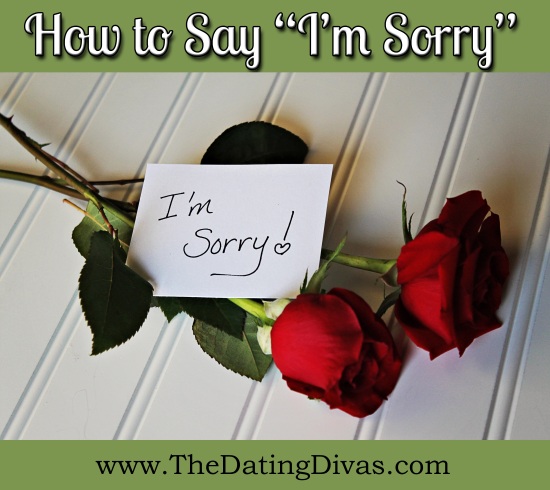It was Elton John who sang, “Sorry seems to be the hardest word…” This couldn’t more true, and especially in marriage. For a majority of divorced couples, the problems in their marriage started (or were worsened) with the lack of an apology, or a horribly botched apology. We’re human and we make mistakes. Oftentimes those mistakes hurt the people we love the most. It could be as minor as a grouchy look, or as serious as a betrayal, but whatever the grievance, you should apologize. Apologizing is just as important in a marriage as other key issues like intimacy, communication, money, children, and time. When a spouse has been hurt, it is difficult not to let those hurts fester into much more damaging feelings when there is no apology or closure. When no “I’m sorry” is said, your spouse can feel as if their feelings and hurts aren’t important to you. This can be extremely detrimental to your relationship, and is something that can fester under the surface for weeks, months, or even years before causing serious damage to your marriage. Everyone deals with hurts differently, and sometimes the smallest hurts can become the largest issues. Let Go of Your Pride The number one thing that gets in the way of a heart-felt apology is pride. We can be truly sorry, but our pride can easily get in the way of us following through with our apology, or can give off a vibe that can cause our spouse to not feel that we are truly sincere. Pride can be ugly, and the first step to a confident apology is forcing that pride to take a back seat to the importance of a healthy relationship with your spouse. Sometimes we forget that it’s okay to admit our faults or our mistakes. In reality, doing so makes us a better person, our humility shows that we truly love our spouse, and allows us to learn from the experience as a couple. Sometimes this also means saying “I’m sorry” even when you may not feel you are to blame for the situation. Use Your Spouse’s Apology Language Another item to consider when apologizing is your spouse’s apology language. Dr. Chapman, the author of The Five Love Languages, also wrote another amazing book called The Five Languages of Apology. He discovered that not only do our spouses need to receive love in the “love language” they relate to, but they also need receive apologies in their “language of apology.” Think about it. The way I envision a sincere apology is probably not the same way you do. When my husband apologizes to me, all I want is for him to acknowledge the fact that he hurt my feelings, and know that he is truly sorry. This allows me to feel that he values my feelings. That he regrets whatever he did to hurt me. You may want an apology that provides your spouse an opportunity to right their wrong. The five different “languages of apology” are as follows according to Dr. Chapman: Expressing Regret, Making Restitution, Genuinely Repenting, Accepting Responsibility, and Requesting Forgiveness. Many times, just as with “love languages,” your spouse may need apologies that are a combination of two of these – for example, a restitution along with an expression of regret. If you can determine what your spouse’s apology language is, you will be on the fast track to making up! Use Humor When Needed Sometimes adding a little humor is the perfect way to break the tension, and get closer to the “making up” stage of the situation. This is a tricky thing though, because you have to know your spouse well. When some people are hurt, they are not in the mood for humor at all, and it to them it is a sign that you aren’t taking the situation seriously. I would save the humor for more minor grievances like saying you’re sorry for a snappy remark, or fighting about whose turn it was to change the baby’s diaper. If the apology is for something more serious like a betrayal or an ongoing issue you are having, humor may not be the way to go. But if it, The Dating Divas have some great ideas to help you say I’m sorry in a fun and loving way. Check out Cami’s doghouse printable apology, or Candice’s Heartbreak Hotel apology. Getting the dialogue started between you and your spouse after a hurtful event is essential to healing, and an “I’m sorry” is the best way to start! Don’t let the hurt fester. Know your spouse and the best “language” for validating their emotions. And lastly, make sure pride is nowhere in the equation! For a few more ideas on how to say “I’m sorry” check out our fabulous guide full of ideas and links to make those two little words just a tad bit easier.

